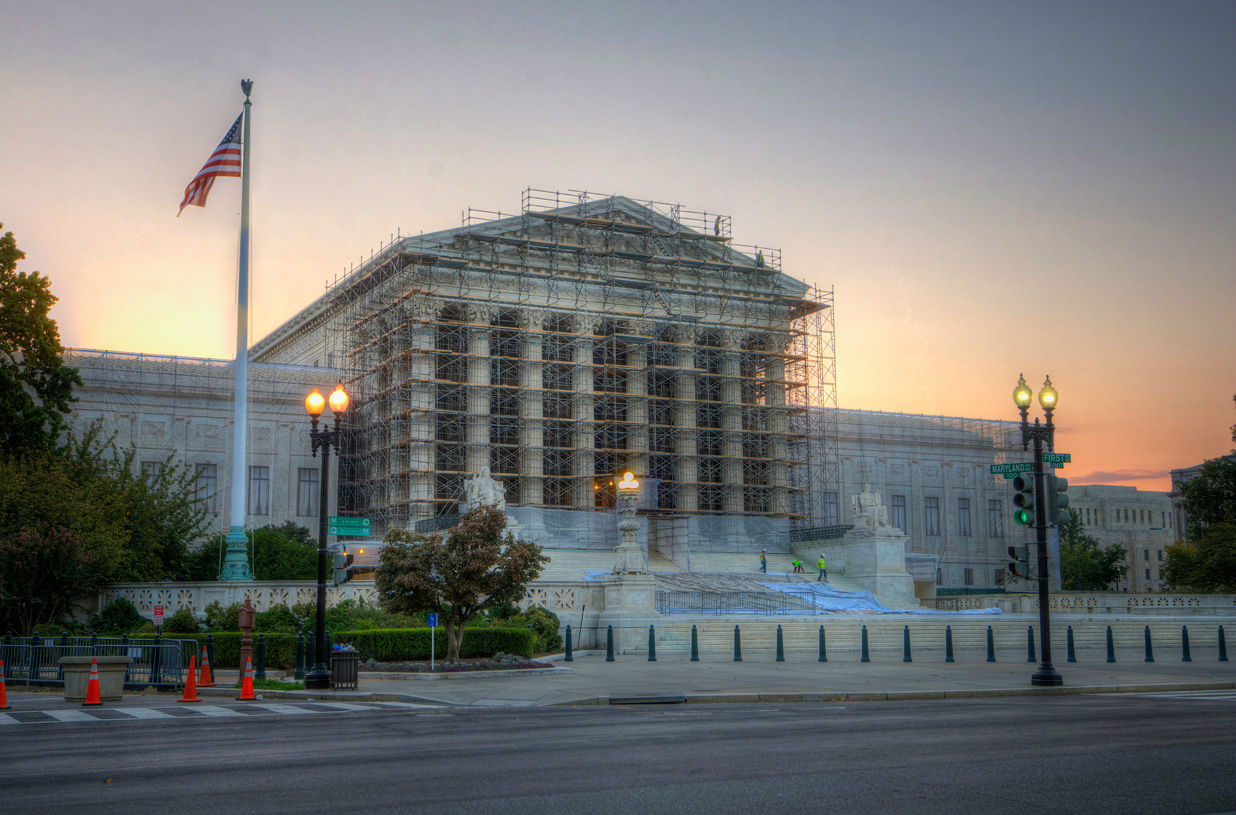Big Supreme Court Decisions Anticipated in Coming Weeks

As the U.S. Supreme Court enters its final stretch, court observers are eagerly waiting decisions in key cases. While the justices have issued opinions in most of the cases argued this fall, four much-anticipated cases remain open.
Below is a brief summary:
McCutcheon v. FEC: The Court will decide the constitutionality of current contribution limits to federal candidates and political committees. The justices are expected to decide whether Buckley v. Valeo, which was decided in 1976, should be overruled. In that decision, the Court held that while contribution limits implicate First Amendment interests, they withstand constitutional scrutiny so long as they are closely drawn to serve a sufficiently important governmental interest. Given the implications on campaign financing, this ruling may create the same buzz as Citizen’s United v. FEC.
Schuette v. Coalition to Defend Affirmative Action: This care represents the Supreme Court’s latest foray into the affirmative action debate. The issue before the Court is whether an amendment to the Michigan state constitution banning racial preferences in public education, employment, or contracting violates the Equal Protection Clause. Because several other states have enacted similar laws, the decision will have implications across the country.
Town of Greece v. Galloway: This high-profile case considers the role of public prayer in government. The suit specifically alleges that the town’s ritual of starting board meetings with a prayer by a member of the local clergy (often a Christian) violates the Establishment Clause. In the past, the Supreme Court has ruled that such practices are not unconstitutional. However, it has not considered the issue in more than 25 years.
Bond v. the United States: While the facts of the case read like a soap opera, the heart of the issues rests in the Tenth Amendment, specifically the federal government’s power to implement international treaties. The circumstances of the case, in which a federal law implementing the United States’ treaty obligations under the 1993 Chemical Weapons Convention was used to prosecute a scorned wife who attempted to poison her husband’s mistress, raise questions about the Constitution’s structural limits on federal authority impose any constraints on the scope of Congress’ authority to enact legislation to implement a valid treaty.
When the Court will issue its decisions is anyone’s guess. By this time last year, the Court had already decided several key cases, including Florida v. Harris, Clapper v. Amnesty International, and Florida v. Jardines. So the clock is ticking.
Of course, there are still important oral arguments on the docket as well, including the constitutionality of the Affordable Care Act’s contraception mandate. As with year’s prior, the justices will likely not disappoint this spring.
Previous Articles
SCOTUS Decision in Bowe v. United States Is First of the 2026 Term
by DONALD SCARINCI on February 5, 2026
In Bowe v. United States, 607 U.S. ___ (2026), the U.S. Supreme Court held that Title 28 U.S.C. § ...
SCOTUS Rules State Can’t Immunize Parties from Federal Civil Liability
by DONALD SCARINCI on January 29, 2026
In John Doe v. Dynamic Physical Therapy, LLC, 607 U.S. ____ (2025) the U.S. Supreme Court held that...
Supreme Court to Address Racial Discrimination in Jury Selection
by DONALD SCARINCI onWhile the U.S. Supreme Court has concluded oral arguments for the year, it continues to add cases t...
The Amendments
-
Amendment1
- Establishment ClauseFree Exercise Clause
- Freedom of Speech
- Freedoms of Press
- Freedom of Assembly, and Petitition
-
Amendment2
- The Right to Bear Arms
-
Amendment4
- Unreasonable Searches and Seizures
-
Amendment5
- Due Process
- Eminent Domain
- Rights of Criminal Defendants
Preamble to the Bill of Rights
Congress of the United States begun and held at the City of New-York, on Wednesday the fourth of March, one thousand seven hundred and eighty nine.
THE Conventions of a number of the States, having at the time of their adopting the Constitution, expressed a desire, in order to prevent misconstruction or abuse of its powers, that further declaratory and restrictive clauses should be added: And as extending the ground of public confidence in the Government, will best ensure the beneficent ends of its institution.





